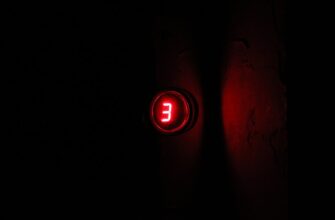- Why Choosing the Right Bitcoin Wallet Matters for US Users
- Key Features to Evaluate in a Bitcoin Wallet
- Top 7 Bitcoin Wallets for USA Users
- 1. Coinbase Wallet (Mobile/Web)
- 2. Ledger Nano X (Hardware)
- 3. Exodus (Desktop/Mobile)
- 4. Trezor Model T (Hardware)
- 5. Electrum (Desktop)
- 6. Trust Wallet (Mobile)
- 7. BlueWallet (Mobile)
- How to Choose Your Ideal Wallet
- Setting Up Your Wallet: Quick US Guide
- Essential Security Practices for US Holders
- Frequently Asked Questions (FAQ)
Why Choosing the Right Bitcoin Wallet Matters for US Users
With Bitcoin’s growing adoption in the United States, selecting the best Bitcoin wallet is crucial for security and convenience. US users face unique considerations like regulatory compliance, tax reporting, and integration with local exchanges. A reliable wallet not only safeguards your crypto assets but also simplifies transactions, trading, and portfolio management. This guide compares top wallets tailored for American investors, beginners, and daily users.
Key Features to Evaluate in a Bitcoin Wallet
Before choosing, consider these critical factors:
- Security: Look for two-factor authentication (2FA), encryption, and seed phrase backups.
- Regulatory Compliance: Ensures adherence to US laws like KYC/AML requirements.
- Fees: Transaction costs vary significantly between wallets.
- Supported Cryptocurrencies: Some wallets handle only Bitcoin; others support altcoins.
- User Experience: Intuitive interfaces matter, especially for newcomers.
Top 7 Bitcoin Wallets for USA Users
1. Coinbase Wallet (Mobile/Web)
Best for Beginners
Coinbase’s standalone non-custodial wallet integrates seamlessly with its exchange. Supports 500+ cryptos and NFT storage.
- Pros: User-friendly, FDIC insurance for USD, DeFi access
- Cons: Higher fees for conversions
2. Ledger Nano X (Hardware)
Best for Security
This Bluetooth-enabled cold wallet stores crypto offline. Supports 1,800+ assets via Ledger Live app.
- Pros: Military-grade security, US regulatory compliance
- Cons: $149 upfront cost
3. Exodus (Desktop/Mobile)
Best for Multi-Asset Management
A sleek software wallet with built-in exchange and portfolio tracker. Supports 250+ cryptocurrencies.
- Pros: No KYC, real-time charts
- Cons: Limited customer support
4. Trezor Model T (Hardware)
Best for Advanced Users
Touchscreen cold wallet with open-source firmware. Integrates with US exchanges like Kraken.
- Pros: Shamir Backup, strong US presence
- Cons: $219 price point
5. Electrum (Desktop)
Best for Bitcoin Purists
Lightweight software wallet focused exclusively on BTC. Customizable transaction fees.
- Pros: Advanced features like multisig, low resource usage
- Cons: Dated interface, no altcoin support
6. Trust Wallet (Mobile)
Best for DeFi Access
Binance-owned wallet with Web3 browser. Supports staking and token swaps.
- Pros: Zero fees for receiving, multi-chain support
- Cons: Limited desktop functionality
7. BlueWallet (Mobile)
Best Lightweight Option
Open-source mobile wallet with Lightning Network integration. Ideal for small transactions.
- Pros: Free, multisig vaults
- Cons: No altcoin support
How to Choose Your Ideal Wallet
Match your needs:
- Long-term investors: Hardware wallets (Ledger/Trezor)
- Active traders: Exchange-linked wallets (Coinbase)
- Privacy-focused users: Non-KYC options (Exodus)
- US-specific needs: Ensure IRS Form 1099-B compatibility
Setting Up Your Wallet: Quick US Guide
- Download from official app stores or manufacturer sites
- Create strong password + enable 2FA
- Securely store 12-24 word recovery phrase offline
- Connect to US exchange (e.g., Coinbase, Kraken) for purchases
- Verify transactions with blockchain explorers
Essential Security Practices for US Holders
- Never share recovery phrases digitally
- Use hardware wallets for holdings over $1,000
- Enable biometric authentication on mobile apps
- Regularly update wallet software
- Verify wallet addresses via QR codes
Frequently Asked Questions (FAQ)
Q: Are Bitcoin wallets legal in the USA?
A: Yes, but wallets must comply with FinCEN regulations. Most major providers meet US legal standards.
Q: Do I pay taxes on Bitcoin in wallets?
A: You owe taxes when selling or trading Bitcoin. Wallets like Coinbase provide tax documents for US users.
Q: Can I use international wallets in the USA?
A: Yes, but ensure they support USD conversions and US regulatory requirements.
Q: What if I lose my hardware wallet?
A: Your crypto remains safe if you have the recovery phrase. Simply restore funds on a new device.
Q: Are mobile wallets safe for large amounts?
A: Not recommended. Use hardware wallets for significant holdings due to offline storage.
Q: How do I buy Bitcoin with a US bank account?
A: Most US-compatible wallets integrate with exchanges supporting ACH transfers (e.g., Coinbase, Kraken).
Choosing the best Bitcoin wallet in the USA balances security, functionality, and regulatory alignment. For most users, Ledger (hardware) and Coinbase Wallet (software) offer optimal protection and convenience. Always prioritize wallet control and regular security audits to safeguard your digital assets in the evolving crypto landscape.








